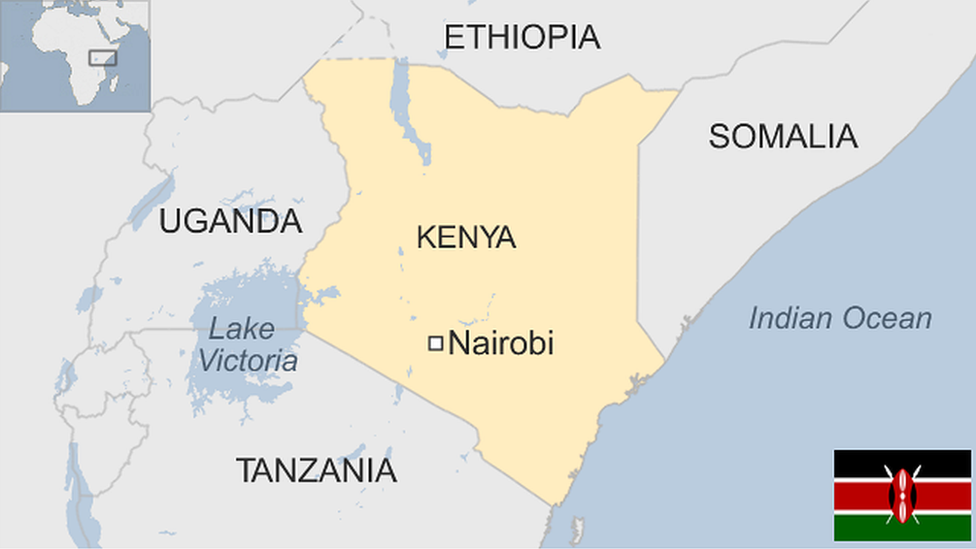Kenya doctors' strike: The cancer patient and the medic
- Published
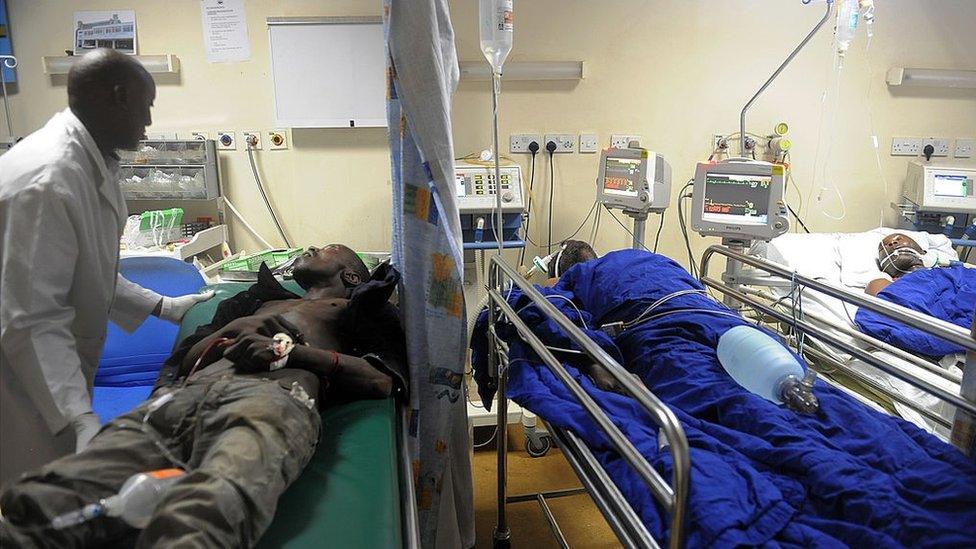
There is a lot of concern that many doctors are leaving the profession
Kenya's public hospitals are almost at a standstill as thousands of doctors and other medical staff nationwide continue to strike, demanding a pay rise and better medical facilities in a walkout that started last December.
A breast cancer patient and a doctor tell the BBC about how the dispute has affected them:

The patient: 'It was like my life was over'
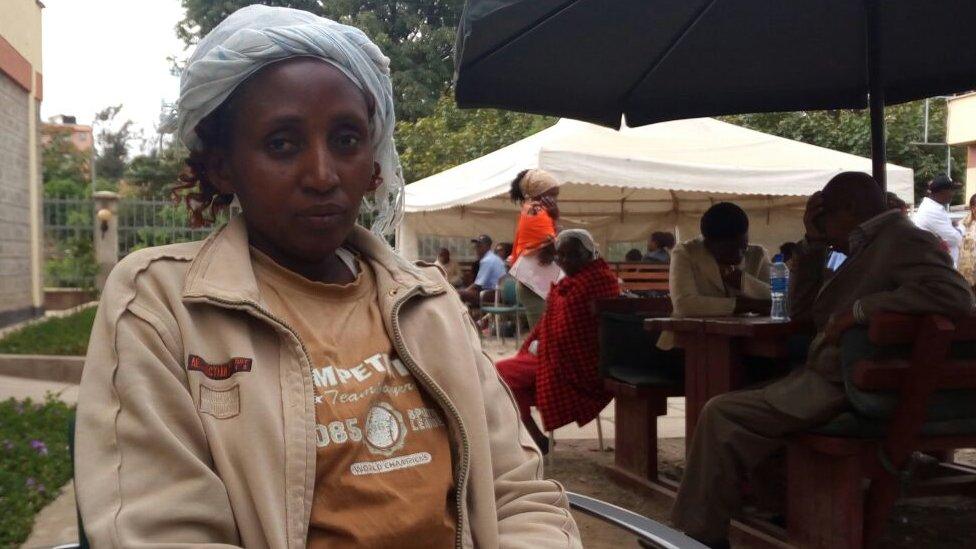
Ms Njeru hopes the government will meet the doctors' demands
Irene Wanjiku Njeru, a mother with three children, was diagnosed with breast cancer in 2013. A lack of funds and inadequate cancer treatment facilities in her home area Kirinyaga, which is over 100km (62 miles) from the capital Nairobi, meant she was forced to delay treatment up until late 2015. Later, when she needed more care, she found she could not get help at Kenyatta National Hospital because of the strike:
I started getting sick when the doctors' strike started. The doctors said that they would have to do some scans, to find out what was happening.
They took the scans on 2 December, I was told to return a week later.
I went back on 8 December, but the doctors' strike had just started and from then on my life became very difficult.
I was unable to get treated because I did not have the scan results. They needed the scans to find out how far the disease had spread.
I was in pain but only had basic painkillers to help. It was like my life was over.
So at one point, my husband had to look for money and I managed to get a consultation as an outpatient in a local clinic. But they couldn't help me without the scan results and they told me to go back to the Kenyatta National hospital.
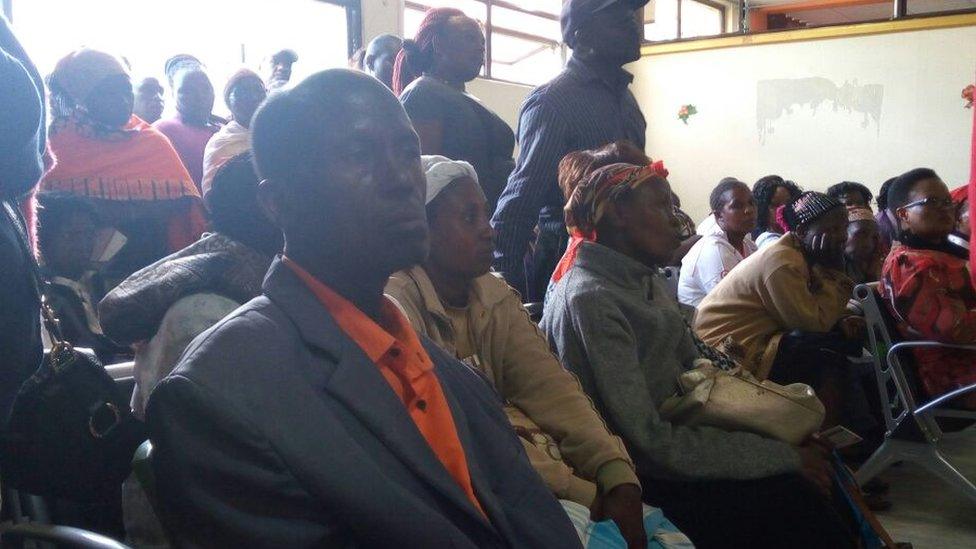
Many Kenyans are unable to afford private care
I went back to the hospital, where I met a nurse who was able to help me by going through the records and getting my scans. I took them back to the clinic and the doctor told me that the cancer had spread and I needed to go to a bigger hospital, to get more medication.
As the strike continues, it is really affecting us, especially cancer patients because many people don't have the money [to go to a private hospital]. You are forced to either have a fundraiser or sell your property.
I am now at this private cancer centre where I am getting medical care [chemotherapy] as my husband got some money, but I would urge the government to pay the doctors their money so that they can treat us.

What is the strike about?
Medical staff want a deal signed between the Kenya Medical Practitioners' Union and the Kenya government in 2013 to be implemented
The agreement included a pay rise for doctors and other provisions to review working conditions, job structures and criteria for promotions
The doctors' union also says it wants more medics hired to reduce the doctor-patient ratio, currently one doctor for more than 16,000 Kenyans
The government is reported to be offering striking doctors a 40% pay rise, which the union has rejected
Seven union officials spent a few days in jail this week for refusing to comply with a court order to negotiate. A judge has called on all parties to find a resolution within days.

The doctor: 'I resigned out of frustration'
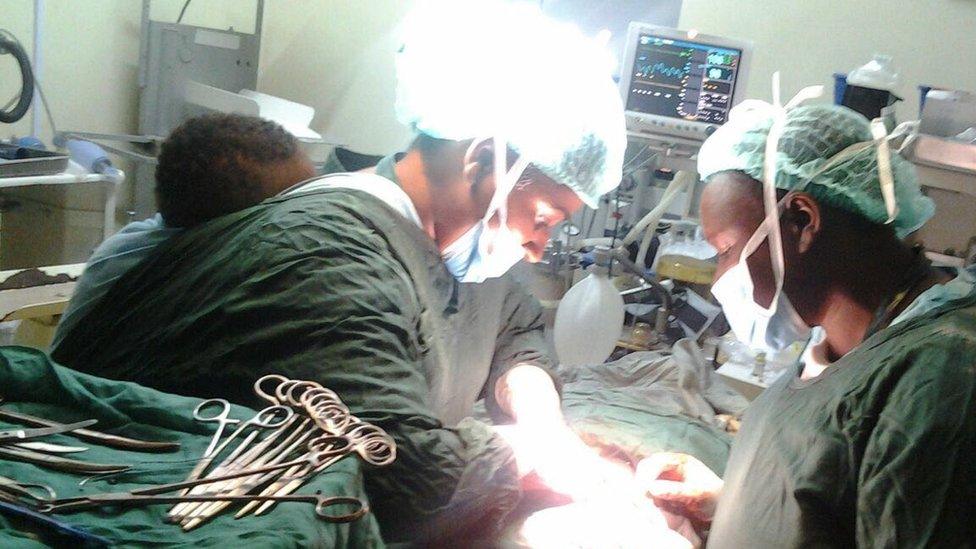
Staff shortages at one hospital meant an on-call surgeon had to operate with her son on her back
Dr Elizabeth Wala is a specialist in infectious diseases. She worked in the public healthcare sector before leaving to join a university. She was also CEO of the Kenya Medical Association in 2014. She now works for an international NGO:
I knew it was time to go when I was sick and there was no cover for me and so I had to continue working.
I was operating in theatre when I collapsed. I couldn't be treated at the hospital where I was, which was 200km (125 miles) outside Nairobi, so an ambulance - or rather it was just a vehicle - was called to take me to hospital in Nairobi.
I had to have an operation, and afterwards while I was recuperating, I had an offer from the university, and I resigned from the hospital.
I resigned out of frustration and because of the pressures doctors work under.
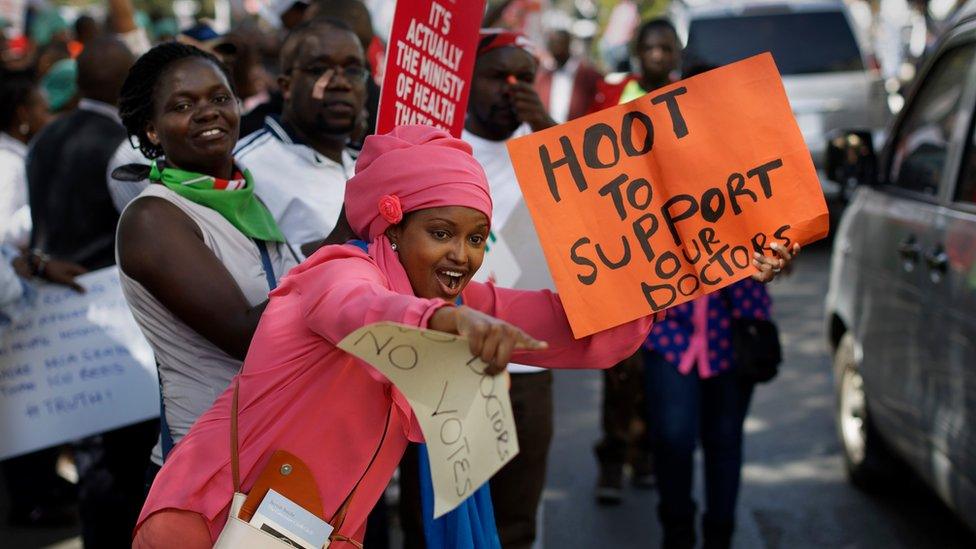
There is some public support for the strike
Doctors don't have oxygen, sutures and sometimes not even electricity. There are cases where doctors operate with just a torch for light. They also have to cope with faulty equipment which could put them at risk of injury or infection.
Around 4,000 doctors, nearly half of the sector, have left. They have gone for either for greener pastures abroad, into administrative jobs or have left medicine altogether.
The life of a doctor in Kenya is terrible.
The reason for the protests is that they want the government to register and implement the deal that was agreed in 2013. That agreement addressed a lot of issues to do with maximum working hours, security in hospital environments, promotion and of course, pay.
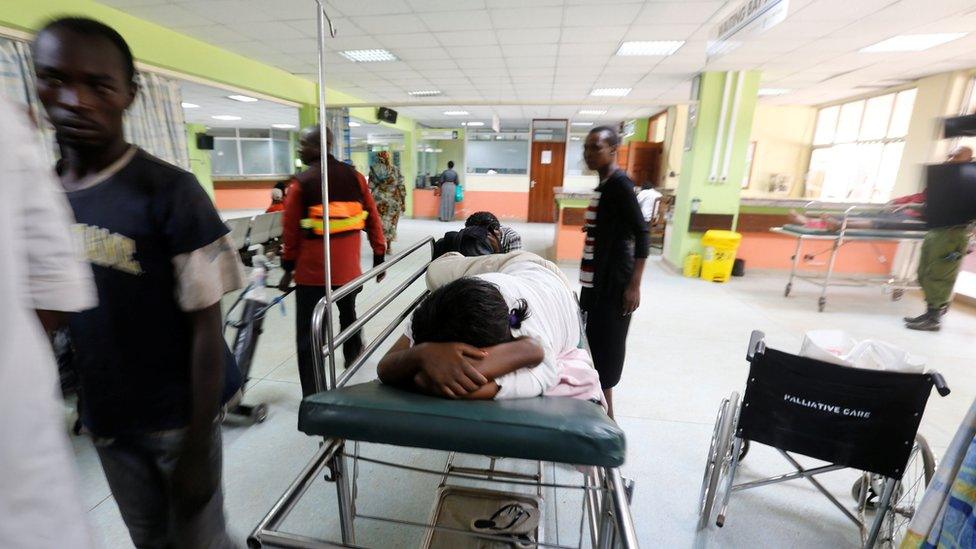
A skeleton staff is operating at some hospitals
A doctor's basic salary can be around 40,000 Kenyan shillings ($400; £320) per month, and that's before any deductions. Doctors are asking for a pay rise of around 180%.
The government is trying to paint the doctors as "greedy" and "wanting too much" and trying to misrepresent our claims by saying doctors are seeking a 300% pay increase.
I believe there's immense public support for the doctors' action. And more and more, doctors are sharing their stories about the poor medical conditions.
Some emergency services are still functioning in some areas and some hospitals have skeleton staffing, so those who need immediate treatment can go there. And those that can afford it can go privately.
But the doctors are willing to stick it out and continue striking for as long as it takes.

Healthcare in Kenya

Minor cases are handled in local dispensaries, complex cases are referred to hospitals
In addition to local health centres and district hospitals, each of the 47 counties has a county hospital and there are also two national hospitals, one in Eldoret and one in Nairobi
Gaps in public healthcare provision are filled by private hospitals, many of them run by religious organisations
Doctors and medical staff are paid by their counties but pay levels are set by both national and county administrations.
- Published5 December 2016
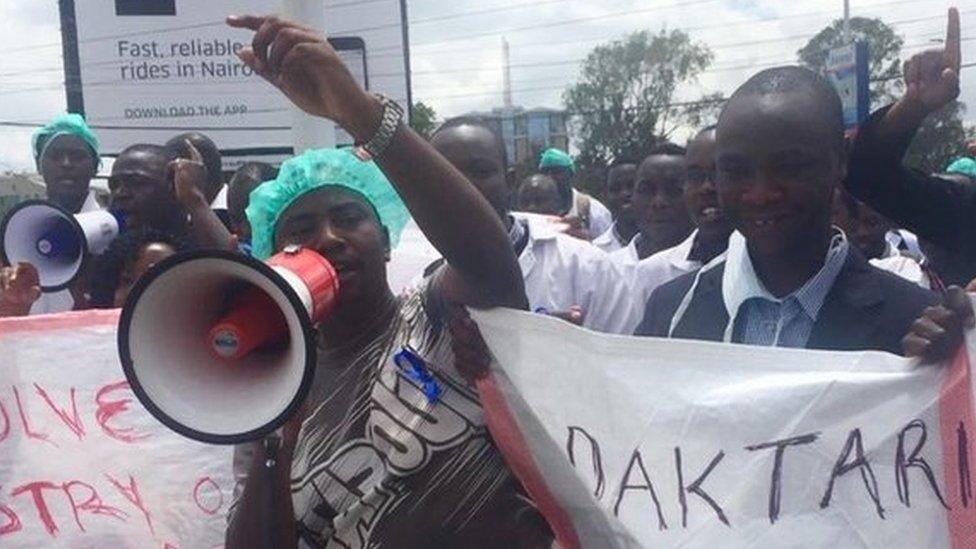
- Published23 March 2016
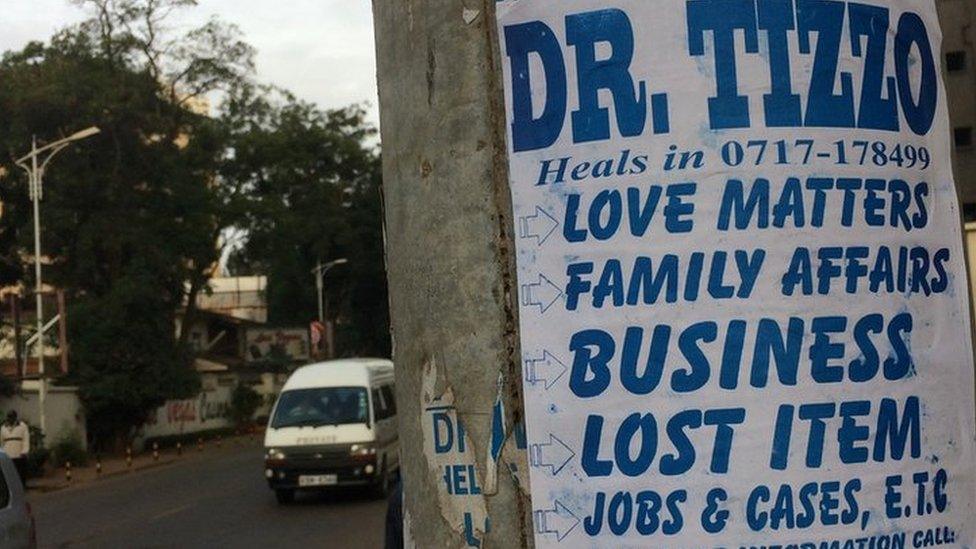
- Published4 July 2023
